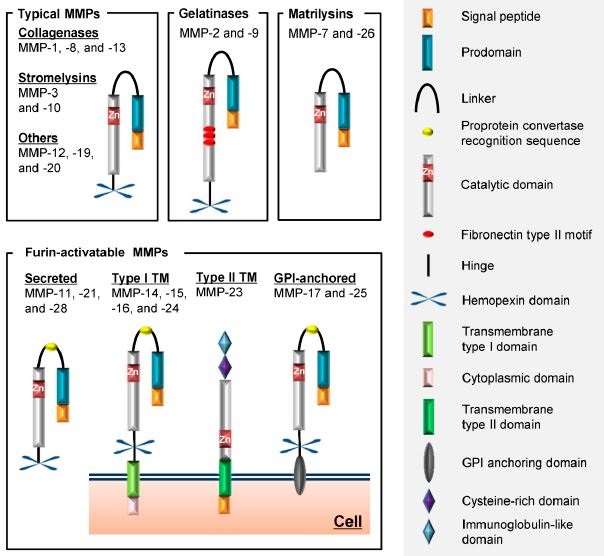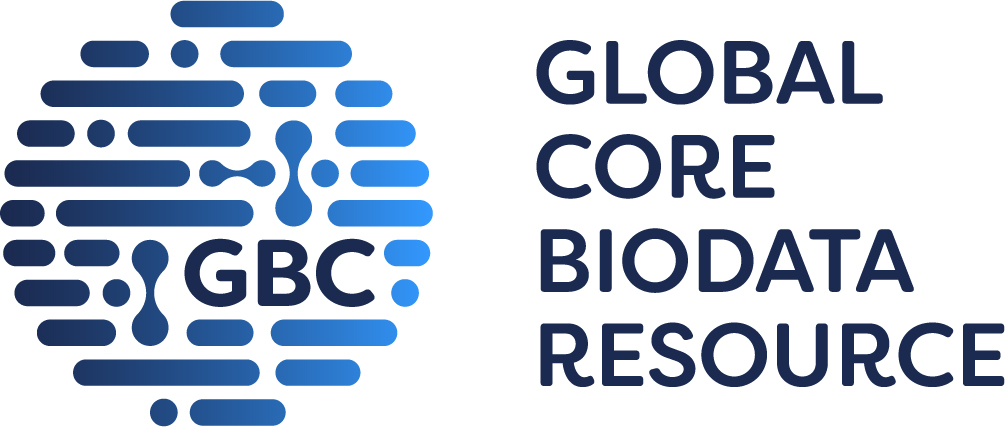
GtoPdb is requesting financial support from commercial users. Please see our sustainability page for more information.
M10: Matrix metallopeptidase: Introduction

Figure 1. Classification and structure of human MMPs Image from Tokito and Jougasaki (2016) [3]
References
1. Brown GT, Murray GI. (2015) Current mechanistic insights into the roles of matrix metalloproteinases in tumour invasion and metastasis. J Pathol, 237 (3): 273-81. [PMID:26174849]
2. King SE. (2016) Matrix metalloproteinases: new directions toward inhibition in the fight against cancers. Future Med Chem, 8 (3): 297-309. [PMID:26910530]
3. Tokito A, Jougasaki M. (2016) Matrix Metalloproteinases in Non-Neoplastic Disorders. Int J Mol Sci, 17 (7). [PMID:27455234]
How to cite this page
To cite this family introduction, please use the following:
M10: Matrix metallopeptidase, introduction. Last modified on 16/03/2017. Accessed on 23/02/2026. IUPHAR/BPS Guide to PHARMACOLOGY, https://www.guidetopharmacology.org/GRAC/FamilyIntroductionForward?familyId=738.







